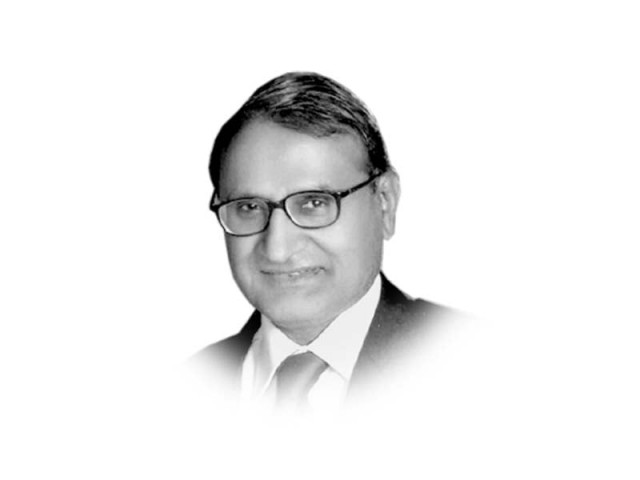Umpires playing politics
Why have offices that fail to conform to constitutionality?

Governor Ismail of Sindh goes to Lahore at state expense to win back Aleem Khan. This is on top of his daily routine to keep the demanding MQM happy and toe the party line against the government in Sindh. As if this was not enough, he made a political speech at his party’s public meeting at the Parade Ground in Islamabad. Khyber-Pakhtunkhwa Governor Shah Farman regularly attends election rallies, indulges in political manoeuvring and makes party-political statements. Governor Sarwar of Punjab openly marketed the party in the no-confidence bargains and was sacked for not doing enough. Balochistan, the only province with a non-political governor, was ‘mainstreamed’ recently by appointing a card carrying member of the ruling party. The highest Constitutional office, the President, keeps acting like a party worker but his recent partying for political conspiracy has no parallel. According to anchor Kamran Khan, he had never been as active in the past three years and half as now. Make no mistake, the role of the constitutional office holders was, more or less, the same under previous regimes.
Why have offices that fail to conform to constitutionality? Can’t the functions be performed alternatively to reduce the fiscal burden? For the ceremonial functions they perform, the President spends over a billion rupees, Governor Punjab needs half of that amount and the poor Balochistan’s governor spends half of what the Punjab Governor does. Sindh and Khyber-Pakhtunkhwa are not too far behind. What do they do as work? Administering oaths, signing ordinances and acts. That leaves all the time for unseemly politicking, the worst of which is seen in universities under the chancellorship.
The latest political warfare has also exposed the partisan role of the custodians of the houses of the parliament and provincial assemblies. There is no doubt that the elected officers of the houses continue to owe allegiance to their party heads. Mr Asad Qaiser, the Speaker of the National Assembly, has been attending party meetings and addressing party workers in full public view. Deputy speaker Suri issued a ruling drafted and cleared by the core committee of the party. The Punjab speaker had a governor removed, and continues in the office while being a candidate for the office of the Chief Minister. He has made sure that if he is not elected to the office, no one shall enter the house, literally. This includes his own deputy, who tried to implement the directive of the Supreme court.
According to Article 41, the President “shall be the Head of State and shall represent the unity of the Republic”. The only formal constraints are religion, age and eligibility to be a member of the National Assembly. Neutrality, necessary to represent unity, is only an informal expectation. It does not find an explicit mention in the oath. The same is true for speakers and governors. Perhaps the Chief Justice of Pakistan can also act as the non-executive head of state and likewise for governors in the provinces. It will save money and ensure political neutrality. The President and Governor Houses so vacated should become state guest houses for foreign dignitaries and when not so occupied, rented out to those who can afford. The error of converting the Prime Minister House into a university should not be repeated. As for speakers/deputy speakers and Senate chairman, the requirement of resigning upon election from the basic membership of their respective parties and some restraint on future political affiliation may be necessary but not sufficient. There is room for further thinking here. Neutrality in our political culture demands formal enforcement.
Published in The Express Tribune, April 8th, 2022.
Like Opinion & Editorial on Facebook, follow @ETOpEd on Twitter to receive all updates on all our daily pieces.















COMMENTS
Comments are moderated and generally will be posted if they are on-topic and not abusive.
For more information, please see our Comments FAQ